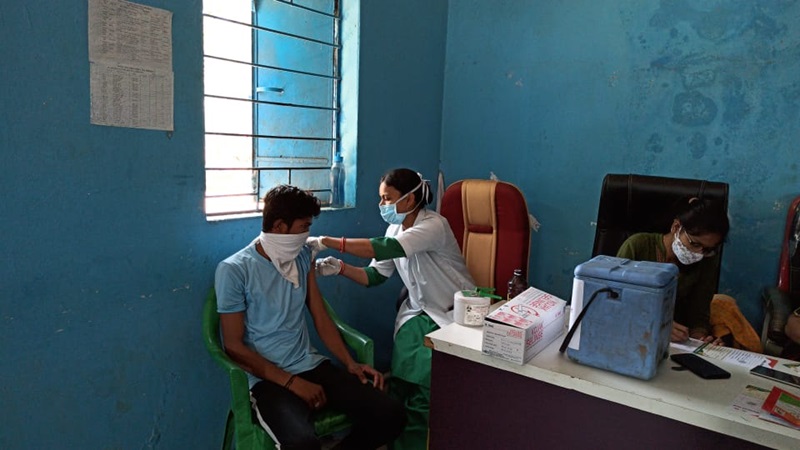Two days back, Prime Minister Narendra Modi announced that the central government will provide free vaccines to states for all people above 18 years of age. The central government has decided to buy a total 75 per cent of vaccine production from vaccine makers, including 25 per cent of state quota, and give it free to state governments.
So far, the states were procuring vaccines from manufacturers for people above 18 years of age and the Centre was providing free vaccines for only those above 45 years of age.
Also Read: Starting June 21, free vaccines to all states for people above 18: PM Modi
My address to the nation. Watch. https://t.co/f9X2aeMiBH
— Narendra Modi (@narendramodi) June 7, 2021
This decision of the central government has been welcomed by the Oxfam India, a non-profit working to end discrimination in the society, and Forum for Medical Ethics Society (FMES), a health rights network. However, both the health rights groups reiterate that the new vaccine policy is far from “universal and accessible”.
“Successful vaccination drives are rooted in detailed district plans and social mobilisation strategies to reach vulnerable communities; these are missing in the COVID-vaccination drive time around,” Amitabh Behar, Oxfam India’s Chief Executive Officer said in a press statement issued on June 8. Oxfam India is a member of the People’s Vaccine Alliance, a health rights organisation.
“India needs to start maintaining disaggregated records of people vaccinated by income, social group and gender to allow us to understand the gap in the extent of vaccination of India’s rich and poor and its Dalits, Adivasis and minorities ; men and women,” he added.
During his address to the nation on June 7, Modi had also announced that private hospitals can only charge Rs 150 as service charge on vaccines. Appreciating the decision to direct states to cap service charges in private hospitals at Rs 150, People’s Vaccine Alliance has urged the Prime Minister to declare 100 per cent centralised procurement of the vaccine for equitable distribution.
Encourage offline modes for vaccine slot registrations
The press statement by health rights groups highlighted that only 15 per cent of rural households have access to the Internet and only 24 per cent of India’s population has smartphones making the current vaccination enrolment strategy discriminatory.
The near complete reliance on on-line appointments for vaccination without providing walk-in facilities for those under 45 tends to exclude those who lack internet access, the elderly living alone, those with disability and populations such as homeless and pavement dwellers and those in institutions and women.
“A more targeted bottom-up approach is needed to ensure vaccination nearer to peoples’ habitations, especially in high coronavirus prevalence areas. Vaccine slot registrations through offline modes and phone calls or SMS should be encouraged considering the deep digital divide in the country,” read the statement by Oxfam India and Forum for Medical Ethics Society on vaccine policy dated June 8.


















